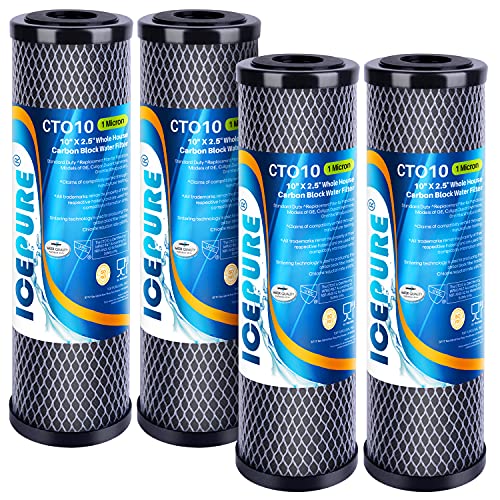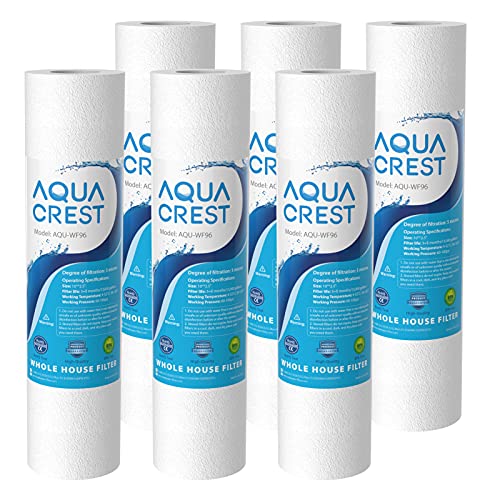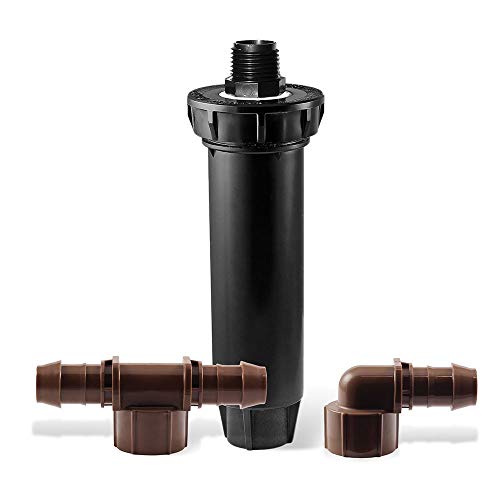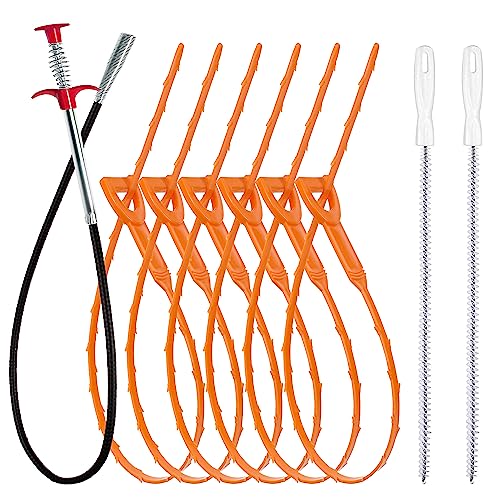You are using an out of date browser. It may not display this or other websites correctly.
You should upgrade or use an alternative browser.
You should upgrade or use an alternative browser.
Dielectric union or NOT
- Thread starter Twowaxhack
- Start date

Help Support Plumbing Forums:
This site may earn a commission from merchant affiliate
links, including eBay, Amazon, and others.
Talking heads and the internet can say what they want but in the real world I find things like this on a regular basis.
It really upsets people who are suppose to be smarter than me
It really upsets people who are suppose to be smarter than me
I have been having issue with smutz plugging the cold inlet side on my 40 gallon gas. It has dielectric and still has build up. I am just waiting to replace when it goes as it is old. I am hoping my buddy at the supply house gets another demo or floor model and i can get at a reduced rate
Cool, it lasted for 21 years.
But as for me, I'm sticking with the plumbing theory, and even better the engineering science, and will continue to use dielectric unions. Directly connecting galvanized nipples to copper pipe is not proper plumbing and FAR from best practice.
But as for me, I'm sticking with the plumbing theory, and even better the engineering science, and will continue to use dielectric unions. Directly connecting galvanized nipples to copper pipe is not proper plumbing and FAR from best practice.
Rheem didn’t want to use dielectric nipples but they needed an easy way to install heat traps to meet government energy regulations.
Rheems engineers back in the 90’s did not care if you used dielectric nipples or unions and would readily tell you that the water plays a huge role the rate of corrosion. With some water the corrosion is almost non existent. They may still subscribe to that, I haven’t asked
They will warranty the water heater with copper directly to the tank.
The standard Dielectric unions sold today should be banned for use on water heaters and so should the thin steel plastic lined nipples they’re using today on water heaters.
Rheems engineers back in the 90’s did not care if you used dielectric nipples or unions and would readily tell you that the water plays a huge role the rate of corrosion. With some water the corrosion is almost non existent. They may still subscribe to that, I haven’t asked
They will warranty the water heater with copper directly to the tank.
The standard Dielectric unions sold today should be banned for use on water heaters and so should the thin steel plastic lined nipples they’re using today on water heaters.

$31.99 ($16.00 / Count)
$39.99 ($20.00 / Count)
PUREPLUS 5 Micron 10" x 4.5" Whole House Sediment and Carbon Water Filter Replacement Cartridge for GE FXHTC, GXWH40L, GXWH35F, GNWH38S, Culligan RFC-BBSA, WRC25HD, PP10BB-CC, Pentek RFC-BB, 2Pack
PUREPLUS FILTERS

$26.45
$32.15
RIDGID 57003 EZ Change Plumbing Wrench Faucet Installation and Removal Tool
Amazon.com

$23.99 ($12.00 / Count)
$26.99 ($13.50 / Count)
AQUA CREST FXHSC Whole House Water Filter, Replacement for GE® FXHSC, GXWH40L, GXWH35F, American Plumber W50PEHD, W10-PR, Culligan® R50-BBSA, 5 Micron 10" x 4.5", High Flow Sediment Filters, Pack of 2
Water Purity Expert

$29.99 ($7.50 / Count)
$39.86 ($9.96 / Count)
ICEPURE 1 Micron 2.5" x 10" Whole House CTO Carbon Sediment Water Filter Cartridge Compatible with DuPont WFPFC8002, WFPFC9001, SCWH-5, WHCF-WHWC, WHCF-WHWC, FXWTC, CBC-10, RO Unit, Pack of 4
ICEPURE Store

$31.99 ($10.66 / Count)
$35.86 ($11.95 / Count)
Waterdrop AP810 Whole House Water Filter, Replacement for 3M® Aqua-Pure® AP810, AP801, AP811, Whirlpool® WHKF-GD25BB, WHKF-DWHBB, 5 Micron, 10" x 4.5", Well & Tap Water Filter, Pack of 3
WaterdropDirect

$35.99 ($12.00 / Count)
$40.78 ($13.59 / Count)
AQUA CREST FXHTC Water Filter Whole House Water Filter, Well Water Filter Replacement for GE® FXHTC, GXWH40L, American Plumber W10-PR, Culligan® RFC-BBSA, W10-BC, Carbon Filters, 5 Micron, Pack of 3
Water Purity Expert

$32.98 ($5.50 / Count)
Membrane Solutions 5 Micron 10"x2.5" String Wound Whole House Water Filter Replacement Cartridge Universal Sediment Filters for Well Water - 6 Pack
Membrane Solutions Corp

$11.96 ($5.98 / Count)
$12.99 ($6.50 / Count)
GE FXWTC Whole Home System Replacement Filter Set, Pack of 2 - NSF Certified: Reduces Chlorine, Sediment, Rust & Other Impurities - Replace Every 3 Months for Best Results (replaces 910163)
Amazon.com
Cool, it lasted for 21 years.
But as for me, I'm sticking with the plumbing theory, and even better the engineering science, and will continue to use dielectric unions. Directly connecting galvanized nipples to copper pipe is not proper plumbing and FAR from best practice.
How many water heaters have you taken apart and how many water heaters have you installed ?
A number is all I’m looking for, not an explanation.
I have been having issue with smutz plugging the cold inlet side on my 40 gallon gas. It has dielectric and still has build up. I am just waiting to replace when it goes as it is old. I am hoping my buddy at the supply house gets another demo or floor model and i can get at a reduced rate
Try using at least a 6” brass or stainless nipple directly into the heater.
That’s usually enough separation.
It’s you want to totally isolate the heater from piping use short piece of pex between the brass or stainless nipples and your copper piping.
These are super sexy 
I’d use these ! But I would still use 6” brass nipples !! Or longer…..
https://www.watts.com/products/plumbing-flow-control-solutions/connections/dielectric-unions/lf3008
No idea what they cost. . I’m sure that’ll separate the men from the boys.
. I’m sure that’ll separate the men from the boys.
Edit : they’re $40 each.
I’d use these ! But I would still use 6” brass nipples !! Or longer…..
https://www.watts.com/products/plumbing-flow-control-solutions/connections/dielectric-unions/lf3008
No idea what they cost.
Edit : they’re $40 each.
Protects again galvanic and stray current.
It could protect against stray current coming from the piping…..
Could there be any stray current on the ground wire of an electric water heater ? It wouldn’t stop that for sure.
Could this stray current be helping fuel one path to corrosion?
I hope everyone is have a great day . It’s Friday
. It’s Friday 
It could protect against stray current coming from the piping…..
Could there be any stray current on the ground wire of an electric water heater ? It wouldn’t stop that for sure.
Could this stray current be helping fuel one path to corrosion?
I hope everyone is have a great day
What if your water heater lost its ground and was using the copper piping as its ground ?
It couldn’t do that if it had dielectric isolating unions.
I’m hungry
It couldn’t do that if it had dielectric isolating unions.
I’m hungry
Twowaxhack, your superiority complex exudes in many of the comments you spout, and this one is a prime example. I mean 4 comments in 31 minutes is a little much.
As this forum is for DIYers as well as plumbers, I would suggest that you include with your superior insights and knowledge what comments are against code. You have said you don't have much use for codes and that you can get anything approved because you are kind of a big deal where you are. But a dielectric fitting is a code requirement in most states.
As this forum is for DIYers as well as plumbers, I would suggest that you include with your superior insights and knowledge what comments are against code. You have said you don't have much use for codes and that you can get anything approved because you are kind of a big deal where you are. But a dielectric fitting is a code requirement in most states.
Twowaxhack, your superiority complex exudes in many of the comments you spout, and this one is a prime example. I mean 4 comments in 31 minutes is a little much.
As this forum is for DIYers as well as plumbers, I would suggest that you include with your superior insights and knowledge what comments are against code. You have said you don't have much use for codes and that you can get anything approved because you are kind of a big deal where you are. But a dielectric fitting is a code requirement in most states.
How many comments am I allowed ?
Stay in your lane.
It’s a code requirement in most states ? Welp, most isn’t all. There’s a difference in my world.
When the chief plumbing inspector calls for your plumbing opinion on occasion, it can go to your head a little
I encourage everyone to read this thread on a professional plumbers forum.
https://www.plumbingzone.com/threads/to-dielectric-union-or-not-to-dielectric-union.86790/
Last edited:
When the chief plumbing inspector calls for your plumbing opinion on occasion, it can go to your head a little
Well, it certainly has in your case!
No, most states is just MOST of them, not ALL of them.
So as someone who provides their opinion to a chief plumbing inspector someplace, don't you think you should at least tell a people requesting information that your opinion may not follow their local code? Your opinion may not matter to their plumbing inspector if they follow their local code.
Just saying, full disclosure is a good thing and can keep people out of a local problem.
Well, it certainly has in your case!
No, most states is just MOST of them, not ALL of them.
So as someone who provides their opinion to a chief plumbing inspector someplace, don't you think you should at least tell a people requesting information that your opinion may not follow their local code? Your opinion may not matter to their plumbing inspector if they follow their local code.
Just saying, full disclosure is a good thing and can keep people out of a local problem.
You just don’t get it to you ?
I don’t care what you think to be honest.
Place me on ignore if you don’t like it.
That’s where I’m placing you so I don’t have to read your posts concerning me personally.
Good bye
2018 IPC
Section 605.23.1 allows for a copper alloy ( brass ) nipple to be used instead of a dielectric nipple or union.
https://inspectapedia.com/plumbing/2018-IPC-International-Plumbing-Code-MO.pdf
The 2021 UPC also allows it.
Section 1605.16.1
https://epubs.iapmo.org/2021/UPC/
Not that it really matters .
Section 605.23.1 allows for a copper alloy ( brass ) nipple to be used instead of a dielectric nipple or union.
https://inspectapedia.com/plumbing/2018-IPC-International-Plumbing-Code-MO.pdf
The 2021 UPC also allows it.
Section 1605.16.1
https://epubs.iapmo.org/2021/UPC/
Not that it really matters .
Last edited:
The engineers at Penn State have a word or two to say on Dielectric Unions…..
Enjoy the read everyone.
https://inspectapedia.com/plumbing/Dielectric-Unions-Nipples-Penn-State.pdf
I would post more but I’m at my posting limit and I’ve more than proved my point.
Enjoy the read everyone.
https://inspectapedia.com/plumbing/Dielectric-Unions-Nipples-Penn-State.pdf
I would post more but I’m at my posting limit and I’ve more than proved my point.
Last edited:
Well as Twowaxhack has placed me on his ignore list, I guess he isn't going to see my apology to him.
As an engineer, I take anecdotal evidence, especially when it goes against codes, with a grain of salt. When this post started, it implied that as a water heater lasted 21 years without any dielectric device, no dielectric device was really required for a water heater. That approach is against code in most, but not all, states. And even where it is per code, some inspectors will not fail direct connections to copper pipe.
This Penn State Bulletin by independent engineers, not engineers from a water heater manufacturer whose business is to sell water heaters, provides great information. It does note that the failure of dielectric unions is not due to their actual use, but incorrect maintenance. Other reports state the other obvious failure as incorrect installation.
"However, dielectric unions are proven sources of leaking
fittings, and should be avoided. When the fitting leaks, the
standard temporary fix has been tightening the fitting. This
squeezes the rubber seal, making the seal less elastic, or the
two metals make contact (see cutaway photo). As the system
temperature changes, the fitting is then more prone to leaking.
The cycle is repeated until the fitting is removed, or enough
corrosion is present to prevent system leaks."
As I indicated in an earlier response on another post, "unscrewing the dielectric unions, cleaning any mineral deposits from the internal of the line, replacing the internal gasket, and lubricating the threads of the union, would pretty much eliminate any problems with the dielectric union." While this corrective action isn't one spelled out in the Penn State Bulletin, such a preventative action would actually resolve the problem the Penn State engineers noted in their Bulletin.
The corrective action for a failed dielectric union, per the Penn State Bulletin, is to install dielectric nipples with brass unions on copper pipe, and steel, cast or malleable iron unions for steel pipe.
So, to meet code in most, but not all, states and to meet the Penn State Bulletin recommendations, if you have copper pipe you will need to install dielectric nipples with brass unions.
As an engineer, I take anecdotal evidence, especially when it goes against codes, with a grain of salt. When this post started, it implied that as a water heater lasted 21 years without any dielectric device, no dielectric device was really required for a water heater. That approach is against code in most, but not all, states. And even where it is per code, some inspectors will not fail direct connections to copper pipe.
This Penn State Bulletin by independent engineers, not engineers from a water heater manufacturer whose business is to sell water heaters, provides great information. It does note that the failure of dielectric unions is not due to their actual use, but incorrect maintenance. Other reports state the other obvious failure as incorrect installation.
"However, dielectric unions are proven sources of leaking
fittings, and should be avoided. When the fitting leaks, the
standard temporary fix has been tightening the fitting. This
squeezes the rubber seal, making the seal less elastic, or the
two metals make contact (see cutaway photo). As the system
temperature changes, the fitting is then more prone to leaking.
The cycle is repeated until the fitting is removed, or enough
corrosion is present to prevent system leaks."
As I indicated in an earlier response on another post, "unscrewing the dielectric unions, cleaning any mineral deposits from the internal of the line, replacing the internal gasket, and lubricating the threads of the union, would pretty much eliminate any problems with the dielectric union." While this corrective action isn't one spelled out in the Penn State Bulletin, such a preventative action would actually resolve the problem the Penn State engineers noted in their Bulletin.
The corrective action for a failed dielectric union, per the Penn State Bulletin, is to install dielectric nipples with brass unions on copper pipe, and steel, cast or malleable iron unions for steel pipe.
So, to meet code in most, but not all, states and to meet the Penn State Bulletin recommendations, if you have copper pipe you will need to install dielectric nipples with brass unions.



































![MEISTERFAKTUR drain snake 2.0 [50 FT] - with drill attachment - Ideal plumbing snake for sink and drain unblocking - Solid drain auger for real DYIs! (50 FT - 1/4 inch)](https://m.media-amazon.com/images/I/41VwmTiOsgL._SL500_.jpg)




















